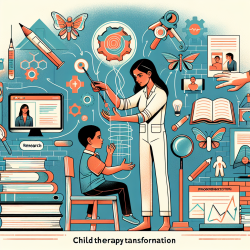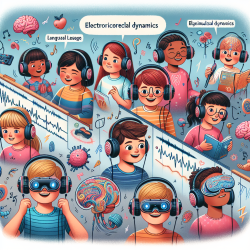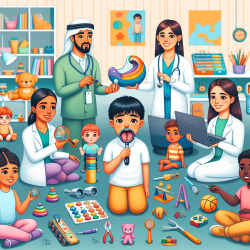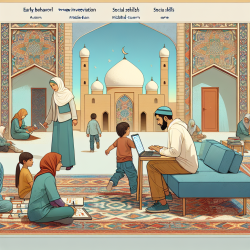Unlock the Secret to Transforming Child Therapy: Lessons from Latin America and the Caribbean
As a speech-language pathologist, the quest for improving child therapy outcomes is unending. In our field, data-driven decisions are paramount, and understanding global research can significantly enhance our practices. A recent analysis, "Strengthening institutional capacity for equitable health research: lessons from Latin America and the Caribbean," provides valuable insights that can be applied to our work, especially in online therapy services like those offered by TinyEYE.
Key Insights from the Research
The research highlights the importance of building research capacity in low and middle-income countries through strategic collaborations and institutional strengthening. This approach is not only applicable to health research but can also be adapted to enhance child therapy services. Here are some key takeaways:
- North-South and South-South Collaborations: The research emphasizes the importance of collaborations between high-income and low-income countries. Such partnerships can lead to sustainable development and innovation in therapy practices.
- Institutional Strengthening: Building robust institutions that can adapt and innovate is crucial. This can be mirrored in creating strong therapy frameworks that are adaptable to different cultural and socio-economic contexts.
- Interdisciplinary Teams: The development of interdisciplinary research teams is highlighted as a key factor. In therapy, this translates to collaborative teams of therapists, educators, and parents working together to achieve the best outcomes for children.
Implementing the Lessons in Child Therapy
How can these insights be applied to improve child therapy practices? Here are some actionable steps:
- Foster Collaborative Networks: Encourage collaboration between therapists across different regions to share knowledge and strategies. This can be facilitated through online platforms and conferences.
- Invest in Training: Continuous professional development is crucial. Encourage participation in workshops and courses that focus on the latest research and therapy techniques.
- Adapt and Innovate: Use the insights from global research to adapt therapy techniques to meet the specific needs of children from diverse backgrounds.
Encouraging Further Research
The research also highlights the need for ongoing research and evaluation to ensure that therapy practices remain effective and equitable. Practitioners are encouraged to engage in research activities, either through collaborations or by pursuing further education.
By integrating these lessons into practice, speech-language pathologists can contribute to the development of more effective and equitable therapy services for children worldwide.
To read the original research paper, please follow this link: Strengthening institutional capacity for equitable health research: lessons from Latin America and the Caribbean.










